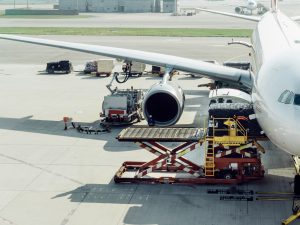Amit Maheshwari, Founder and CEO, Softlink Global said, “I see 2026 as the year of intelligent logistics ecosystems. AI will move beyond dashboards to decision-making—creating digital co-workers that can act autonomously. Secure data exchange between systems and stakeholders through blockchain and APIs will become mainstream. Finally, a growing focus on compliance, sustainability, and predictive intelligence will define how forwarders operate—and differentiate — globally.”
Read More »‘ Focusing on enhancing visibility and collaboration’
Afzal Malbarwala, MD and Founder, Galaxy Freight, said, “It is AI, Big Data, cybersecurity, and sustainability that firms talk about — and rightly so. But if you look closely, these trends boil down to one core principle: visibility and transparency. When every stakeholder in the supply chain operates with openness and integration, processes run smoother, efficiency improves, and both e-waste and physical waste are reduced. Add in stronger data security, and you gain a clear competitive edge. Our focus is not just on the latest devices or technologies — it is on mechanisms that truly enhance visibility, accountability, and seamless collaboration across the chain. That is where the real advantage lies.”
Read More »‘2026 will belong to those who act fast, stay data-smart & embrace collaboration’
Abhishek Goyal, CEO & Executive Director, Aeroprime Group said, “India’s emergence as the world’s fifth-largest economy and its trajectory toward becoming the third-largest aviation market present unprecedented opportunities for growth and connectivity. These shifts are reshaping how airlines plan networks, manage capacity, and engage with travelers across diverse geographies. For us, 2026 will be about deepening our global presence to build resilience against geopolitical and market uncertainties, ensuring we can serve our partners more robustly across regions. On the cargo side, connected intelligence, automation, and real-time visibility will remain key drivers, helping create agile, insight-led operations. GSA and GSSA partners will continue to play a crucial role in this evolving landscape, acting as strategic enablers for airlines navigating complex or emerging markets where local expertise, data-driven insights, and established relationships are vital. The next wave of aviation will belong to those who act fast, stay data-smart, and embrace collaboration to build a more connected, adaptable, and future-ready global aviation network.”
Read More »KIA wins ‘Best Airport – Cargo Business’ Award @ICA 2025
Kempegowda International Airport (KIA) Bengaluru was recognised with the ‘Best Airport – Cargo Business’ Award at the recent India Cargo Awards 2025, celebrating its exemplary performance in the air cargo sector. The accolade highlights the airport’s commitment to operational excellence, efficient cargo handling, and fostering growth in India’s logistics ecosystem. This recognition underscores Bengaluru’s position as a leading hub for air cargo, reflecting the airport’s dedication to innovation, service quality, and seamless connectivity for domestic and international trade.
Read More »Automation/ACMES to improve efficiency: DCSC
Avinash Razdan, Group CEO, CSC Group, said, “DCSC has moved from manual documentation to electronic processing — e-AWB, electronic customs messaging, e-CSD, e-Gate Pass, 24×7 export and import operations. We use a unified system (ACMES) for cargo message exchange, slot/truck management, online visibility, streamlining interaction among cargo stakeholders. Close coordination with customs, forwarders and airlines is well-structured and institutionalised. DCSC works with many airlines and freighters, plus forwarders. DCSC’s collaboration with airlines, forwarders and customs includes digital workflows, integrated logistics infrastructure, efficient stakeholder interface (slots/trucks/warehouses), and service-level commitments (turnaround times).
Read More »GOX, TUI launch cargo flight to Manchester & Gatwick
Manohar International Airport, Goa (GOX) and TUI proudly announced the successful departure of the maiden TUI cargo flight to the United Kingdom, marking a significant step in enhancing Goa’s global connectivity. The new service will operate four times a week — twice to Manchester Airport and twice to Gatwick Airport — strengthening trade and logistics links between Goa and the UK. The inaugural flight achieved a record-breaking 14-tonne cargo uplift, a first for the region, symbolizing a major leap forward in Goa’s air freight capabilities. This milestone ushers in a new era of commerce, connectivity, and opportunity, paving the way for expanded international trade and travel from Goa. This remarkable achievement is a testament to the dedication, vision, and teamwork of everyone involved. Special appreciation is extended to ACFI, Goa Chamber of Commerce and Industry (GCCI) and ECS Group for their unwavering support. “Kudos to the Business Development team and the entire GOX family for making this milestone possible,” said GOX officials. “Together, we’ve opened the skies to new horizons for Goa’s growth and global engagement.”
Read More »Cargo services resume at Donyi Polo Airport
Air cargo services have resumed at Donyi Polo Airport, Itanagar, following a temporary suspension due to the operations shifting to the airport’s new terminal building. According to a statement from the office of Arunachal Pradesh Civil Aviation Minister Balo Raja, the BCAS Regional Director has informed the Donyi Polo Airport Director and the IndiGo services manager about the approval for the resumption of air cargo operations. This move ensures seamless cargo movement and strengthens the region’s connectivity.
Read More »INDIARPORT to focus on improving infra, skills & sustainability
The 11th PHDCCI Global Aviation & Air Cargo Conclave–2025 is ready to kickstart on 18 November at Yashobhoomi, Dwarka in New Delhi. The two day event aims to foster dialogue on the evolving dynamics of air transport, infrastructure development, policy frameworks, and the growing role of technology in shaping the sector’s future. It will also explore pathways for enhancing connectivity, improving cargo handling efficiency, and driving sustainable growth. The conclave will bring together the brightest minds and key stakeholders from India’s aviation and air cargo ecosystem. Organised by the PHDCCI in collaboration with leading industry bodies, the conclave will be held under the theme ‘INDIAIRPORT.’ With participation expected from govt officials, airline leaders, airport operators, and logistics experts, the conclave promises to be a platform for charting the next phase of growth in India’s aviation and air cargo landscape.
Read More »Rhenus expands airfreight capabilities in Southeast Asia
Rhenus Group plans to expand its airfreight capabilities further into Southeast Asia after setting up gateways in Singapore and Bangkok this year, which are considered as key trade hubs in the region and these new gateways complement Rhenus’ existing gateway in Kuala Lumpur, Malaysia, plus help optimise cargo flows across Southeast Asia, connecting to global trade lanes, said official release. The strategic gateways strengthen the presence of Rhenus across key air cargo corridors. Kuala Lumpur facilitates inbound cargo from Europe and outbound cargo to Oceania. Singapore handles inbound cargo from Asia or Oceania, and outbound cargo to the Americas, while Bangkok manages outbound cargo to Europe and serves as a multimodal hub to enhance intra-Asia trade capabilities through regional airfreight and cross-border trucking, added release.
Read More »Beyond Sqfeet honoured with the Excellence in Contract Logistics Award @ICA
Beyond Sqfeet Supplychain Solutions was honoured with the Excellence in Contract Logistics Award at the recently held India Cargo Awards. The recognition highlights the company’s outstanding performance and innovation in contract logistics, showcasing its commitment to operational excellence, customer satisfaction, and efficient supply chain management. This achievement underscores Beyond Sqfeet’s growing reputation as a leader in the logistics sector, setting new benchmarks for quality and service within the industry.
Read More » Cargo Breaking News
Cargo Breaking News









